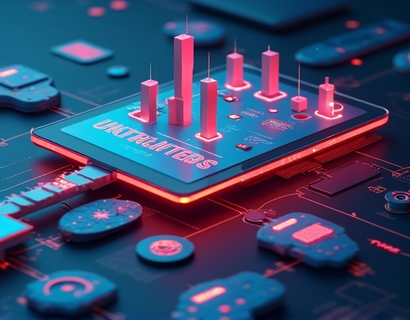AI-Powered Integration Agent: Revolutionizing Business Efficiency with Seamless Automation and Enhanced Collaboration
The modern business landscape is rapidly evolving, driven by technological advancements and the increasing need for efficiency and collaboration. One of the most transformative technologies emerging in this context is the AI-powered integration agent. This sophisticated solution is designed to seamlessly integrate into various business operations, automating routine tasks and providing actionable insights that enhance decision-making processes. By leveraging the power of artificial intelligence, organizations can significantly boost their operational efficiency and foster a collaborative environment, essential for thriving in today's competitive market.
An AI integration agent is not just a tool but a strategic asset that can revolutionize how businesses operate. It integrates smoothly with existing systems, whether they are enterprise resource planning (ERP) systems, customer relationship management (CRM) tools, or custom-built applications. This seamless integration ensures that the AI agent can access and process data from multiple sources, providing a unified view of business operations. The ability to connect and communicate across different platforms and departments is crucial for breaking down silos and promoting a more cohesive work environment.
The primary function of an AI integration agent is to automate repetitive and time-consuming tasks. These tasks can range from data entry and report generation to more complex processes like supply chain management and inventory control. By automating these tasks, the AI agent frees up valuable time for employees, allowing them to focus on higher-value activities that require human creativity and critical thinking. This shift not only increases productivity but also enhances job satisfaction and employee engagement.
One of the most significant benefits of an AI integration agent is its ability to provide actionable insights. Through advanced analytics and machine learning algorithms, the agent can process large volumes of data to identify patterns, trends, and anomalies. These insights can be used to optimize business processes, predict market trends, and make informed strategic decisions. For instance, an AI agent can analyze sales data to identify the most profitable product lines or customer segments, enabling targeted marketing efforts and improved resource allocation.
Enhanced collaboration is another key area where AI integration agents excel. In today's distributed and remote work environments, effective communication and teamwork are more critical than ever. The AI agent can facilitate collaboration by integrating with communication tools like Slack, Microsoft Teams, and email platforms. It can automate the flow of information, ensuring that relevant data and updates are shared in real-time among team members. This real-time collaboration reduces the risk of miscommunication and ensures that everyone is aligned and working towards common goals.
The implementation of an AI integration agent involves several steps to ensure a smooth and effective integration. First, a thorough assessment of the current business processes and systems is necessary to identify areas where the AI agent can add the most value. This assessment helps in defining the scope of integration and the specific tasks the agent will automate. Once the objectives are clear, the next step is to select an AI solution that aligns with the business needs and technical infrastructure.
Choosing the right AI integration agent is crucial for success. Factors to consider include the agent's compatibility with existing systems, the range of automation capabilities, the quality of insights provided, and the level of customization possible. It's also important to evaluate the vendor's support and maintenance services to ensure ongoing success. Once the agent is selected, the integration process begins, which may involve configuring APIs, setting up data pipelines, and training the AI models with relevant data.
During the integration phase, it's essential to monitor the agent's performance and make adjustments as needed. This ongoing monitoring helps in identifying and resolving any issues promptly, ensuring that the agent operates efficiently and effectively. Regular updates and enhancements to the AI models are also necessary to keep up with changing business needs and data patterns. By maintaining a proactive approach to maintenance, organizations can maximize the benefits of their AI integration agent.
The impact of an AI integration agent on business efficiency is profound. By automating routine tasks, the agent reduces the likelihood of human error and increases the speed and accuracy of operations. This efficiency gain translates into cost savings and improved service delivery. For example, in manufacturing, an AI agent can optimize production schedules based on real-time data, reducing downtime and increasing output. In finance, it can automate compliance checks and risk assessments, ensuring faster and more accurate decision-making.
Moreover, the insights provided by the AI agent can drive strategic innovation. By analyzing market trends and customer behavior, businesses can identify new opportunities and refine their offerings to better meet customer needs. This data-driven approach to innovation can give organizations a competitive edge, enabling them to stay ahead in a rapidly changing market. For instance, a retail company can use AI insights to personalize customer experiences, leading to higher customer satisfaction and loyalty.
Collaboration is a cornerstone of modern business success, and an AI integration agent plays a vital role in fostering a collaborative culture. By breaking down information silos and ensuring that relevant data is accessible to all team members, the agent promotes transparency and trust. This transparency is particularly important in cross-functional teams where coordination and alignment are key to achieving business objectives. The AI agent can also facilitate knowledge sharing by summarizing complex data into actionable insights, making it easier for team members to understand and act on the information.
In addition to internal collaboration, an AI integration agent can enhance external partnerships and supplier relationships. By providing real-time data and insights, the agent helps in managing supply chains more effectively, reducing lead times, and improving inventory management. This level of visibility and control can lead to stronger partnerships and more reliable supply chains, which are critical for maintaining operational continuity.
The adoption of an AI integration agent also aligns with the broader trend of digital transformation. As businesses increasingly embrace digital technologies, the ability to integrate AI seamlessly into operations becomes a necessity rather than a luxury. Digital transformation is not just about adopting new tools but about fundamentally changing how businesses operate and deliver value. An AI integration agent is a key component of this transformation, driving efficiency, innovation, and growth.
For professionals and businesses looking to leverage AI for enhanced performance and success, the benefits of an AI integration agent are clear. Whether you are a small startup or a large enterprise, the right AI solution can provide the edge needed to thrive in a competitive market. By automating routine tasks, providing actionable insights, and fostering collaboration, an AI integration agent can significantly enhance business efficiency and drive long-term success.
In conclusion, the AI-powered integration agent represents a significant leap forward in business technology. Its ability to automate tasks, provide valuable insights, and enhance collaboration makes it an indispensable tool for modern organizations. As businesses continue to evolve, the strategic implementation of AI integration agents will become increasingly important for those looking to stay ahead and achieve sustained success.










































